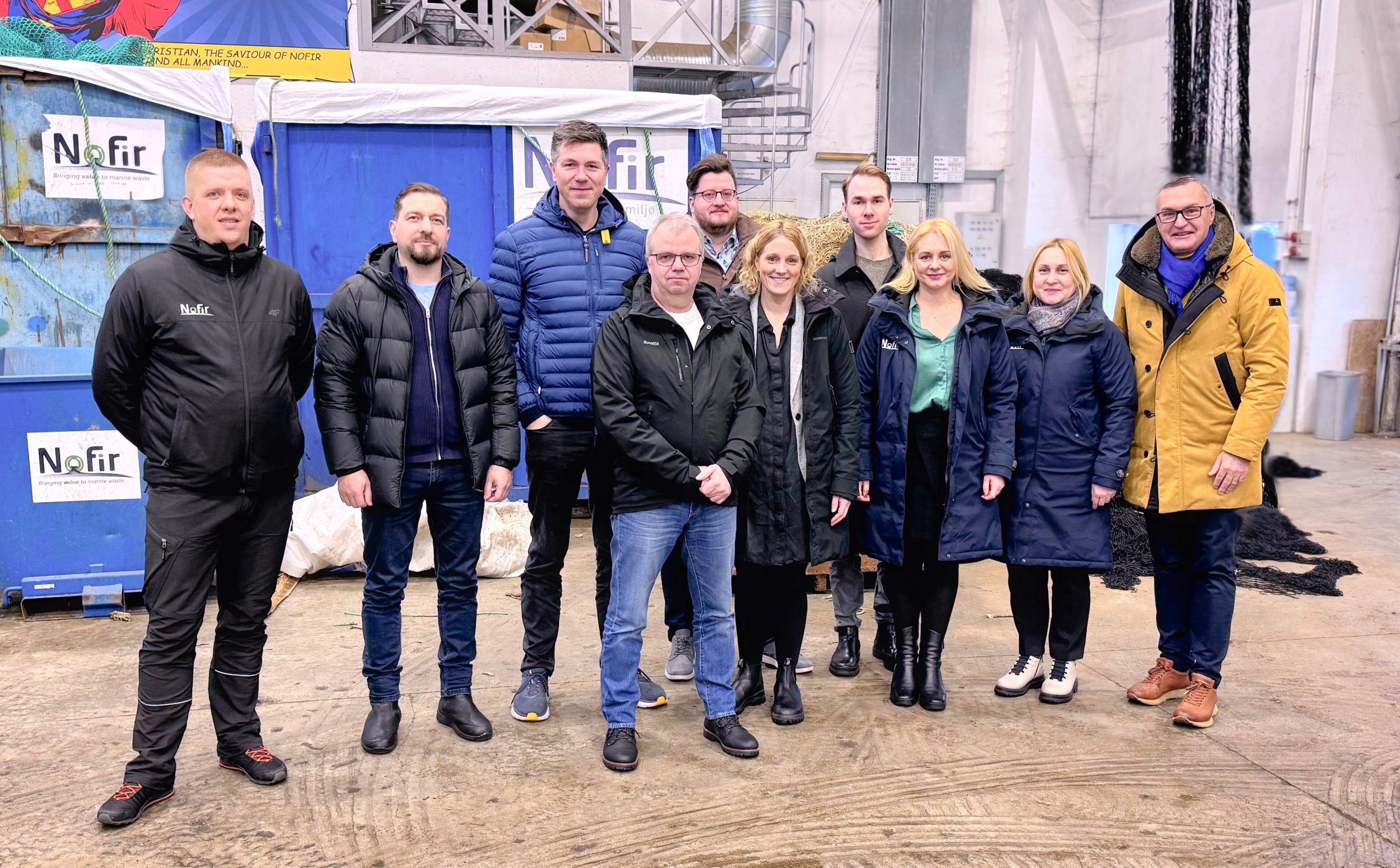Hampidjan Group, with all its subsidiaries, is a key participant in a project on circular product design that has achieved recognition as it is being named a finalist in the Aquaculture Awards 2024.
The project Circular Fish Farming Nets (CFFN), funded by the Norwegian Retailers Recycling Fund, is a collaboration between Hampidjan Group, Nofir, Aquafil, Akva Group and Grieg Seafood and explores the introduction of 100% recycled nylon in the production of netting as a one-to-one replacement for virgin nylon made from raw oil. It has the potential to be transformative for the future sustainability of the aquaculture and fishing sector.
The recycling method that the CFFN project explores is the so called depolymerization of end-of -life nylon that has been practiced for years by Aquafil, one of the project partners. Depolymerization is a chemical process that disassembles the polyamide back into a base oil that can be used to create new PA6 polymers. This process creates a new feedstock for fiber production that is now being utilized for the first time in the production of fibers in the quality and strength that the aquaculture industry requires. Hampidjan Group will, in close cooperation with its subsidiaries Hampidjan Baltic, Vónin, and Mørenot, produce one full-sized aquaculture cage and as will Akva Group. Fibers and netting will be vigorously tested to demonstrate the ability of the recycled material to match the performance of “virgin” nylon. The full cages will then be used at Grieg Seafood sites for a full normal cycle.
 The CFFN project is an exciting opportunity for Hampidjan Group to offer its customers a circular product with a major savings in carbon emissions through the entire value chain of nylon. It will also be a guideline for what is possible in this sector through cooperation across the industry.
The CFFN project is an exciting opportunity for Hampidjan Group to offer its customers a circular product with a major savings in carbon emissions through the entire value chain of nylon. It will also be a guideline for what is possible in this sector through cooperation across the industry.
Nylon has many important applications in the modern marine sector but it is most prevalent in the construction of pelagic cod-ends, surrounding nets and aquaculture cages. Hampidjan Group has been recycling the end-of-life nylon discarded by its customers at mechanical recyclers for years. This method of mechanical recycling has created a downstream product that is inferior to virgin nylon and can’t be used in new high-strength fiber production due to impurities.
Hampidjan Group has in recent years been working closely with customers and industry partners to find end-of-life solutions for the major components that make up products utilized in the aquaculture and fisheries sectors. Apart from nylon, functioning pathways have been established for all PE and PP as well as rubber and metal hardware. The company is committed and actively engaged in projects and partnerships to find effective solutions or alternatives for recycling all material groups that make up its product portfolio.
Photo: Representatives of the companies participating in the CFFN project.


